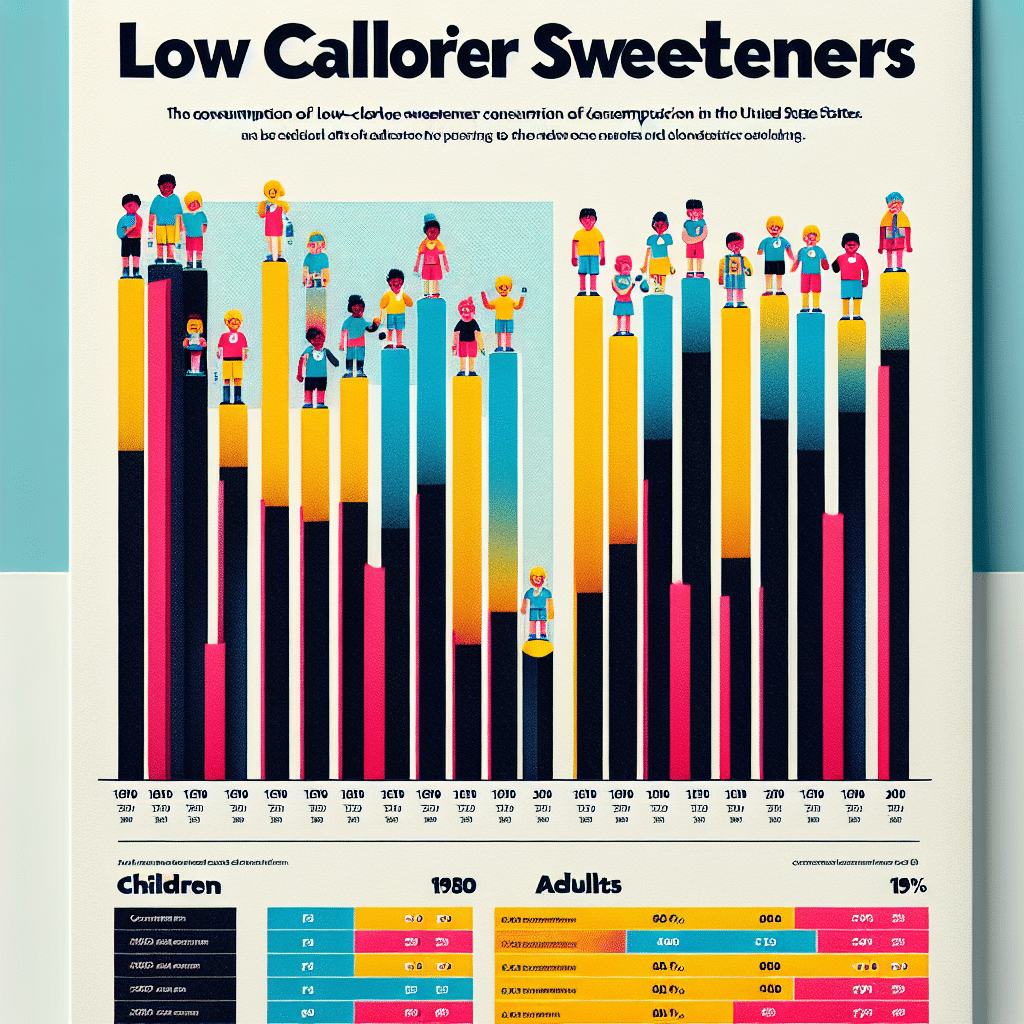Low-Calorie Sweeteners: Rising Use in US Children and Adults
-
Table of Contents
- Low-Calorie Sweeteners: A Growing Trend in American Diets
- Understanding Low-Calorie Sweeteners
- The Rise of LCS in the US: Statistics and Trends
- Why Are Americans Turning to Low-Calorie Sweeteners?
- Health Benefits and Concerns
- Prevalence in Food and Beverages
- Case Studies: LCS in Action
- Conclusion: Balancing Sweetness and Health
- ETChem: Enhancing Your Diet with High-Quality Protein Products
Low-Calorie Sweeteners: A Growing Trend in American Diets

The consumption of low-calorie sweeteners (LCS) has been on the rise in the United States, reflecting a growing trend among both children and adults seeking alternatives to sugar. These sweeteners, often referred to as non-nutritive sweeteners, artificial sweeteners, or sugar substitutes, offer the sweetness of sugar without the associated calories. This article delves into the reasons behind their increased use, the types of LCS available, their potential benefits and concerns, and their prevalence in the American diet.
Understanding Low-Calorie Sweeteners
Low-calorie sweeteners are chemical or natural substances that provide a sweet taste with few or no calories. They are significantly sweeter than sugar, meaning that only small amounts are needed to achieve the desired sweetness. The most common LCS include aspartame, sucralose, saccharin, acesulfame potassium, stevia, and neotame.
The Rise of LCS in the US: Statistics and Trends
Recent studies have shown a marked increase in the use of LCS in the United States. According to research published in the Journal of the Academy of Nutrition and Dietetics, the consumption of LCS has tripled among children and doubled among adults over the past two decades. The National Health and Nutrition Examination Survey (NHANES) data indicates that as of the early 2020s, approximately one in four children and more than two in five adults consume LCS on a regular basis.
- Children’s consumption of LCS increased from 8.7% in 1999 to 25.1% in 2018.
- Adults’ consumption of LCS went up from 19% in 1999 to 41.4% in 2018.
Why Are Americans Turning to Low-Calorie Sweeteners?
The reasons behind the rising use of LCS are multifaceted. They include:
- Weight Management: Many individuals turn to LCS as a tool for weight control or reduction, as they can reduce overall calorie intake when substituting for sugar.
- Diabetes Management: LCS do not raise blood glucose levels, making them a popular choice for people with diabetes.
- Dental Health: Unlike sugar, LCS do not contribute to tooth decay, promoting better dental health.
- Availability: An increasing number of food and beverage products now contain LCS, making them more accessible to consumers.
- Public Health Recommendations: Some public health campaigns suggest reducing sugar intake, which may lead people to choose LCS as alternatives.
Health Benefits and Concerns
While LCS offer certain benefits, such as aiding in weight management and diabetes control, there are ongoing debates regarding their safety and long-term health effects. Some studies suggest that LCS may have unintended consequences, including altering taste preferences, affecting gut microbiota, and potentially leading to weight gain due to compensatory eating behaviors. However, major health organizations, including the FDA and WHO, have deemed the currently approved LCS as safe for consumption within established acceptable daily intake levels.
Prevalence in Food and Beverages
LCS are found in a wide array of products, from diet sodas and sugar-free desserts to yogurts and chewing gum. The availability of these products has contributed to the increased consumption of LCS among Americans. Food manufacturers continue to innovate, creating new products that cater to the demand for lower-calorie, sweet-tasting options.
Case Studies: LCS in Action
Several case studies highlight the impact of LCS on consumer behavior and health outcomes. For instance, a study on the effects of diet soda on weight loss demonstrated that participants who drank diet beverages lost more weight over a 12-week period than those who drank water. Another study examining the role of LCS in diabetes management found that substituting LCS for sugar helped maintain blood glucose levels within target ranges.
Conclusion: Balancing Sweetness and Health
The rising use of low-calorie sweeteners in the US reflects a shift in dietary patterns towards lower-calorie, sugar-free options. While LCS can play a role in weight and diabetes management, it is essential to consider their consumption within the context of a balanced diet and lifestyle. Consumers should be informed about the types of LCS available, their potential benefits, and the importance of moderation.
ETChem: Enhancing Your Diet with High-Quality Protein Products
For those looking to complement their diet with high-quality protein products, ETChem offers a range of collagen-based options. Collagen is a vital protein that supports skin, joint, and bone health. ETChem’s products, including marine, fish, bovine, and chicken collagen, are characterized by their neutral taste and instant solubility, making them an excellent addition to various dietary regimens.
Whether you’re involved in sports nutrition, weight management, or general health and wellness, ETChem’s collagen products can provide the protein boost you need. Their commitment to quality and customer satisfaction makes them a top choice for consumers and manufacturers alike.
About ETChem:
ETChem, a reputable Chinese Collagen factory manufacturer and supplier, is renowned for producing, stocking, exporting, and delivering the highest quality collagens. They include marine collagen, fish collagen, bovine collagen, chicken collagen, type I collagen, type II collagen and type III collagen etc. Their offerings, characterized by a neutral taste, instant solubility attributes, cater to a diverse range of industries. They serve nutraceutical, pharmaceutical, cosmeceutical, veterinary, as well as food and beverage finished product distributors, traders, and manufacturers across Europe, USA, Canada, Australia, Thailand, Japan, Korea, Brazil, and Chile, among others.
ETChem specialization includes exporting and delivering tailor-made collagen powder and finished collagen nutritional supplements. Their extensive product range covers sectors like Food and Beverage, Sports Nutrition, Weight Management, Dietary Supplements, Health and Wellness Products, ensuring comprehensive solutions to meet all your protein needs.
As a trusted company by leading global food and beverage brands and Fortune 500 companies, ETChem reinforces China’s reputation in the global arena. For more information or to sample their products, please contact them and email karen(at)et-chem.com today.




